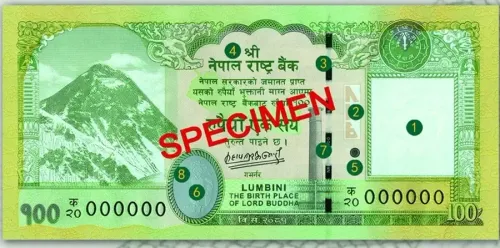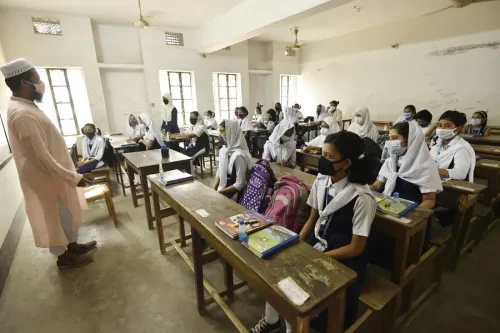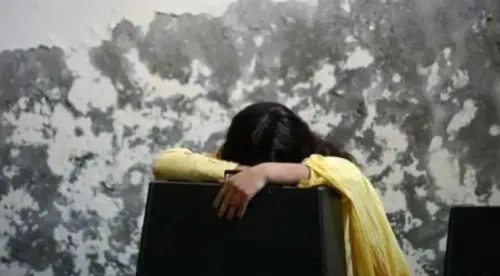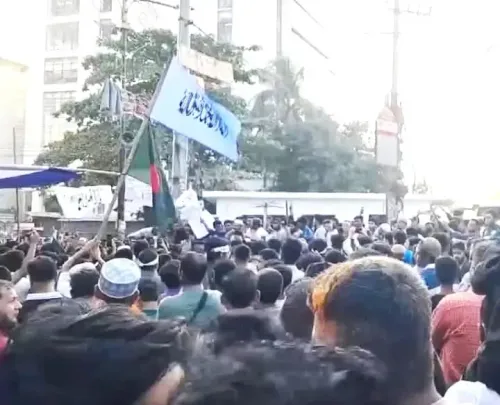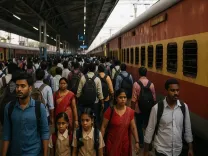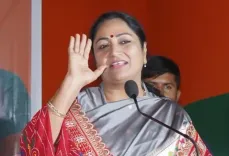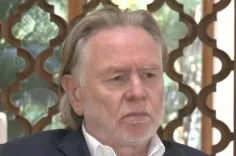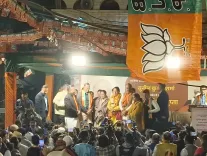Why Does Ramaphosa Call Trump's G20 Summit Statement Regrettable?
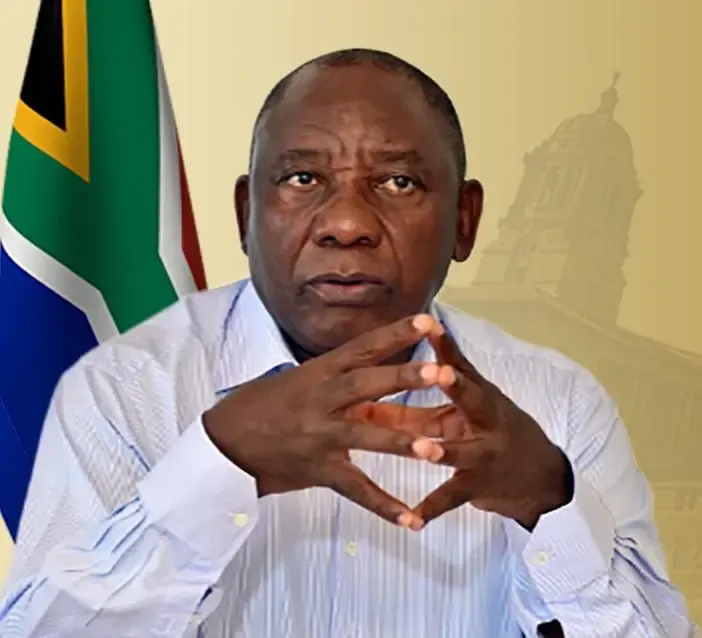
Synopsis
Key Takeaways
- South Africa's G20 membership is recognized by all member nations.
- President Ramaphosa emphasizes the importance of multilateralism.
- Tensions between the US and South Africa have escalated due to misinformation.
- The decision by Trump may affect future diplomatic relations.
- South Africa seeks to maintain its dignity on global platforms.
Johannesburg, Nov 27 (NationPress) South Africa expressed its disappointment on Thursday regarding US President Donald Trump's declaration that the nation will not receive an invitation to the upcoming Group of 20 (G20) Summit in Miami.
President Cyril Ramaphosa emphasized that South Africa holds its G20 membership in its own right and that this membership is acknowledged by all other member nations.
“The statement made by President Donald Trump about South Africa’s involvement in the 2026 G20 meetings is indeed regrettable. The G20 South Africa 2025 Leaders’ Summit was recognized by all participants as one of the most successful gatherings. The resulting declaration underscored the undeniable importance of multilateralism in addressing the world’s pressing issues,” noted a statement from Ramaphosa’s office.
“As the United States was absent at the summit, the G20 Presidency was formally transferred to a US Embassy representative at South Africa’s Department of International Relations and Cooperation. South Africa, being a founding member, has consistently honored the principles of consensus, collaboration, and partnership that characterize the G20 as the leading platform for global economic cooperation. It was anticipated that the United States would engage in all G20 meetings during South Africa’s presidency, but it chose not to attend the G20 Leaders’ Summit in Johannesburg of its own accord,” the statement added.
President Ramaphosa reaffirmed South Africa’s commitment to being a full, active, and constructive G20 member, urging fellow G20 members to uphold the spirit of multilateralism, ensuring that all members engage equally in all structural discussions.
“South Africa is a member of the G20 in its own right. Its participation is validated by all other member nations. South Africa, as a sovereign constitutional democracy, does not tolerate derogatory remarks from any country regarding its worthiness on global platforms. South Africa will not demean another nation or its position within the international community,” the statement conveyed.
“It is unfortunate that despite the numerous efforts by President Ramaphosa and his administration to mend diplomatic ties, President Trump continues to impose punitive actions against South Africa based on misinformation and misrepresentations of our country,” it further stated.
Previously, President Trump declared on Wednesday that he will not include South Africa in next year’s G20 Summit in Miami, Florida, and intends to cease all US aid to the nation.
“By my directive, South Africa will not receive an invitation for the 2026 G20, which will take place in the great city of Miami, Florida next year,” Trump stated via his social media platform, Truth Social. He also mentioned that the United States would “halt all payments and subsidies to them, effective immediately.”
Trump has repeatedly alleged that white individuals in South Africa face violence and that their farms are being unlawfully seized—a claim the South African government has consistently denied.
He also expressed dissatisfaction toward South Africa for not transferring the G20 presidency to a senior US diplomat at the summit's closing ceremony over the weekend. South Africa contended that it would be an insult for President Cyril Ramaphosa to hand over to a junior US official.
Relations between Washington and Pretoria have deteriorated since Trump resumed office in late January. In February, Trump enacted an executive order to suspend US aid to South Africa, accusing the Expropriation Act—a land reform law signed by Ramaphosa in January—of being discriminatory against the white populace, as reported by Xinhua news agency.
In response, the South African government refuted the White House's claims, indicating that the aid freeze “lacks factual accuracy and fails to recognize the significant and painful history of colonialism and apartheid in South Africa.”
In February, US Secretary of State Marco Rubio announced via X that he would boycott the G20 summit in Johannesburg.
In March, the US expelled then South African Ambassador Ebrahim Rasool, further exacerbating bilateral tensions. This expulsion followed a prior address by the ambassador, during which he criticized Trump.
In May, Trump confronted visiting South African President Ramaphosa at the White House with conspiracy theories regarding “white genocide” in South Africa, which Ramaphosa firmly denied.
During that meeting, Ramaphosa, who had traveled to Washington to enhance trade agreements and alleviate bilateral tensions, rejected Trump’s assertions, clarifying that the majority of crime victims in South Africa are Black, and that the idea of white South Africans fleeing due to racist policies is unfounded.
Earlier this month, Trump declared that no US officials would attend the G20 Summit.

